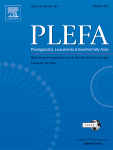Things to read...
Our next Reading Group meeting will be on 4th Oct still online via Teams. A book that I particularly enjoyed when I read it a couple of years ago so I am interested in what other people think of it. The book is Bear Town by Fredrik Backman and don't be put off thinking it is about sport - anyone who knows me will know I have no interest in sport!
It is a dazzling, profound novel about a small town with a big dream—and the price required to make it come true.
People say Beartown is finished. A tiny community nestled deep in the forest, it is slowly losing ground to the ever encroaching trees. But down by the lake stands an old ice rink, built generations ago by the working men who founded this town. And in that ice rink is the reason people in Beartown believe tomorrow will be better than today. Their junior ice hockey team is about to compete in the national semi-finals, and they actually have a shot at winning. All the hopes and dreams of this place now rest on the shoulders of a handful of teenage boys.
Being responsible for the hopes of an entire town is a heavy burden, and the semi-final match is the catalyst for a violent act that will leave a young girl traumatized and a town in turmoil. Accusations are made and, like ripples on a pond, they travel through all of Beartown, leaving no resident unaffected.
Things about pre-eclampsia...
A blood test which identifies pre-eclampsia in pregnant women, a condition that is potentially life- threatening if not diagnosed and closely monitored, is being supported and spread across the region by the Yorkshire & Humber Academic Health Science Network (AHSN).The test eliminates the risk of poor prediction of pre-eclampsia and reduces the risk of unnecessary hospitalisation for women who will not go on to develop the condition. This creates the potential to free up hospital beds and provides both an improved patient experience and wellbeing and financial benefit for the NHS.
Things about CAMHS ..
CAMHS National Summit 2021: transforming mental health services for children and young adults. This online conference, organised by Social Care Conferences, takes place on 16 November 2021. Further information: Social Care Conferences
Things about sepsis...
Clinicians at Portsmouth’s Queen Alexandra Hospital are leading medical trials of a blood test that could help to save thousands of UK lives a year by predicting sepsis days before patients show any symptoms. Sepsis is the immune system’s overreaction to an infection or injury and is associated with life-threatening organ dysfunction. Worldwide, an estimated 49 million people a year contract sepsis, while in the UK almost 2 million patients admitted to hospital each year are thought to be at risk of developing the condition.Presymptom Health believes the technology can predict whether a patient will develop sepsis around 3 days before symptoms appear, enabling clinicians to treat them much sooner and manage them more effectively.
Things about baby boxes...
The Scottish Government has published a report evaluating the Baby Box scheme which provides families with a range of essential items including information leaflets designed to inform and support positive parenting behaviours. Findings from a survey of 2,236 parents, and 870 health visitors, midwives and family nurses include: the estimated take up of baby boxes in Scotland is over 90%; 84% of parents surveyed said they had found the leaflet on safe sleeping useful; and 37% of parents felt they had learned about bonding with their baby through playing, talking and reading as a result of reading a leaflet included in the box.
Things about babies...

Delighted to announce that we have two new members of the Reading Group Lily & Evie both born in the last few weeks. Congratulations to both sets of parents and their families.
Things about autism...
The National Autistic Society and Mind have published a good practice guide to help mental health professionals adapt talking therapies for autistic children and adults. The guide incorporates the views of over 1,500 autistic people and almost 1,000 family members who responded to a mental health survey in October and November 2020.
Things about body image and eating disorders...
The NSPCC has released figures on Childline counselling sessions to children about eating and body image disorders. Figures for 2020/21 show that: there were 4,986 counselling sessions on body image and eating disorder issues. This included a 13% increase in counselling sessions to 12- to15-year-olds compared with 2019/20, and a 7% increase in counselling sessions to 16- to 18-year-olds.
The Royal College of Psychiatrists has released findings following analysis of NHS England data on the number of children and young people waiting for eating disorder treatment. Figures show that at the end of the first quarter of 2021/22: 207 children and young people under the age of 19 were waiting for urgent treatment, up from 56 at the same time last year - a 270% increase; and 1,832 were waiting for routine treatment, up from 441 at the same time last year – a 315% increase. Figures also show that the number of under-19s receiving urgent and routine treatment has also increased by 160% and 93% respectively on figures for the same period last year.
Things to eat...
A recommendation from Sarah this week... nutty plum and sloe gin crumble.













